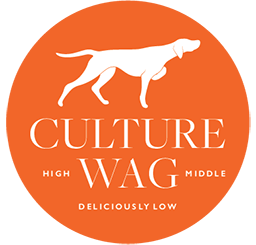Not a Hollywood Ending
Dear Wags,
Death is a tragedy, but there remains the odd case of justifiable homicide. Behold the corpse of the Hollywood Foreign Press Association (1943 -2023). The hit job or evolution (as billionaire investor Tod Boehly put it) took about three years. Some grumps might say it was about 80 years overdue.
The HFPA brought us the Golden Globe Awards, which in their glory days attached millions of eyeballs to a cherished artifact called network television. The membership—for much of its history, less than 100 folks—handed out the goodies, but they were mules for more powerful interests. One of the sadnesses about the demise of the HFPA is that Hollywood types will have to find something else to moan about.
After many embarrassments, the HFPA outlived its usefulness. The Golden Globes brand is to be absorbed by Boehly’s Eldridge Industries and Dick Clark Productions, part of Penske Media. Money from the sale will fund a nonprofit called the Golden Globes Foundation (the HFPA donates money to worthy entertainment charities). Nobody is giving up on the Globes as an awards show. We wish everybody luck.
One may judge how central the HFPA was to these plans by the treatment of its members. They will reportedly be paid $75,000 annually to continue awards-vetting and write articles for the Golden Globes website. In the past, bylines never seemed that important for a group purporting to represent journalists.
Most HFPA members were, to one degree or another, freelancers who sold celebrity pieces to overseas publications. Nothing wrong with that. Still, what qualified them to vote on major film and television awards (and who got to be a member) was murky. Think of the HFPA the way Voltaire saw the Holy Roman Empire —that is, neither holy, nor Roman, nor an Empire. As we wrote some time back, the only safely legit thing about the outfit was the Hollywood in its name.
From birth, the HFPA was welded to the studio hype machine. Getting a bauble from the lofty-sounding Hollywood Foreign Press Association—even if its members weren’t exactly writing front-page articles for Le Monde—boosted a PR campaign. That served the promotional needs of the industry. It also elevated the HFPA in cutthroat awards competition. Sucking up to its members became a dark art.
For a long time, it suited Hollywood fine. The first Globes, in 1944, were held on the Fox lot. Best Picture went to a Jennifer Jones vehicle, The Song of Bernadette. It was the sort of project the Globes would reward a lot — a glossy big budget movie and not an especially good one. FYI, the 1944 Best Picture Oscar went to Casablanca.
The Globes soared to prominence in the 1990s as a mass marketing tool and as televised entertainment in themselves. This coincided with peak interest in the red carpet and the rise of Harvey Weinstein, who masterfully worked awards season to promote his projects. Millions were spent wooing HFPA members. For actors (and their reps), it also meant having to make nice to dubious characters: Grit your teeth and pose for another selfie. It might help you win a Golden Globe, etc.
After Weinstein’s fall, tales of HFPA corruption began to hit home. The Los Angeles Times exposed the group’s lack of Black members, which triggered an avalanche of criticism. Hollywood’s PR firms led the charge, threatening to boycott Globe events unless things changed. Big names such as Tom Cruise, Scarlett Johansson, and Brendan Fraser made their unhappiness with the HFPA known. Those controversies led NBC to shelve its 2022 Globes telecast. The more the HFPA flopped around trying to appease its critics, the worse it got.
Behind the scenes, publicists, executives, and some of the most prominent figures in Black Hollywood got under the hood. The HFPA quickly signed up 215 new members, mostly from diverse backgrounds. Curiously, nobody spent much time sweating the basic premise of the group — was this a legitimate journalistic body or not? In any case, when the Globes telecast returned to NBC this year, it got its lowest rating ever.
That’s not the HFPA’s fault. Awards shows don’t deliver as mass entertainment anymore, regardless of who is in charge. Whatever happens with the Golden Globes, the end of the HFPA isn’t really about ethics or representation. It has to do with the collapse of the Hollywood system, which can no longer operate in the old ways and reap the same rewards. The audience has scattered and moved on. The only question left is whether our wounded entertainment industry can somehow find it again.
Yours Ever,
Marcello Rubini

